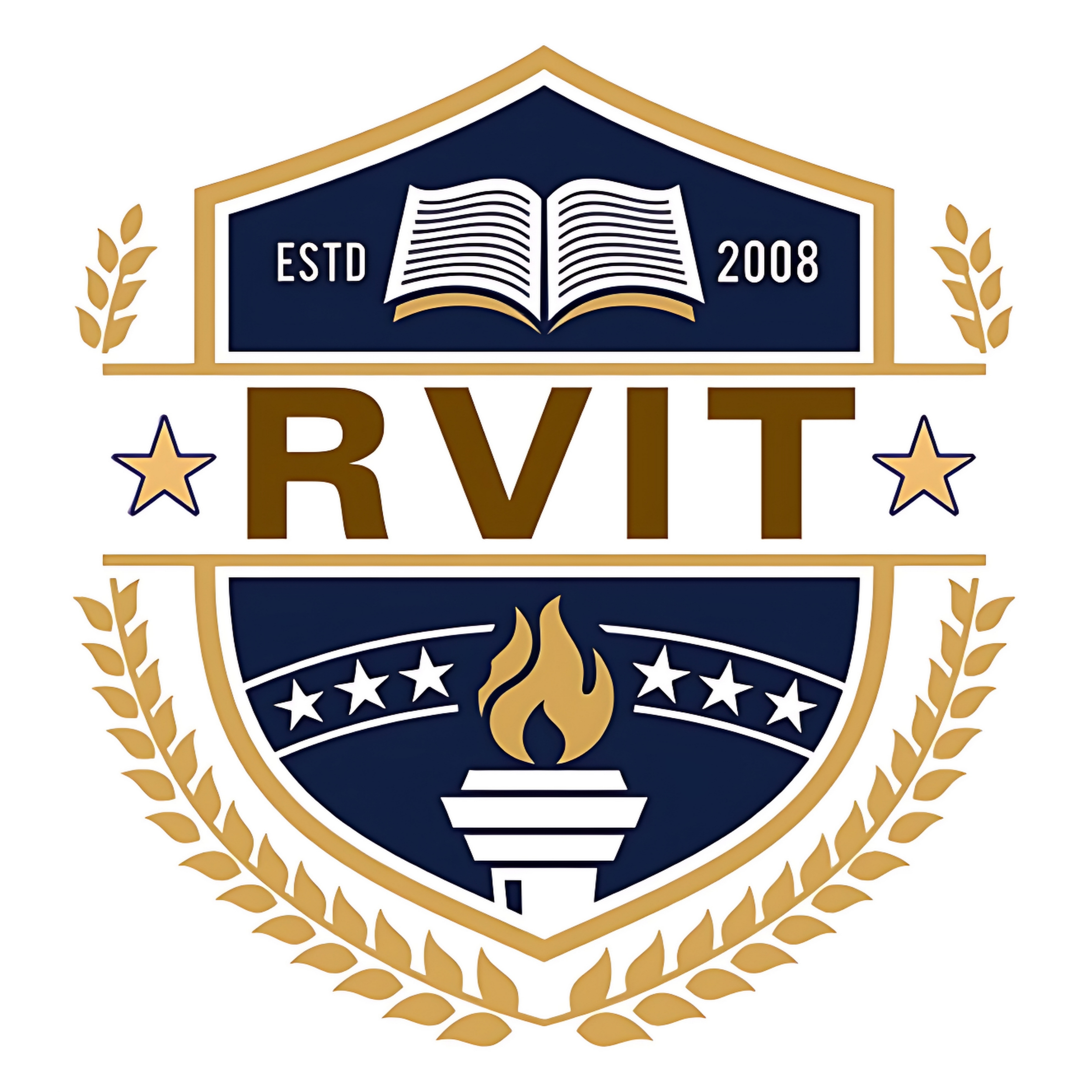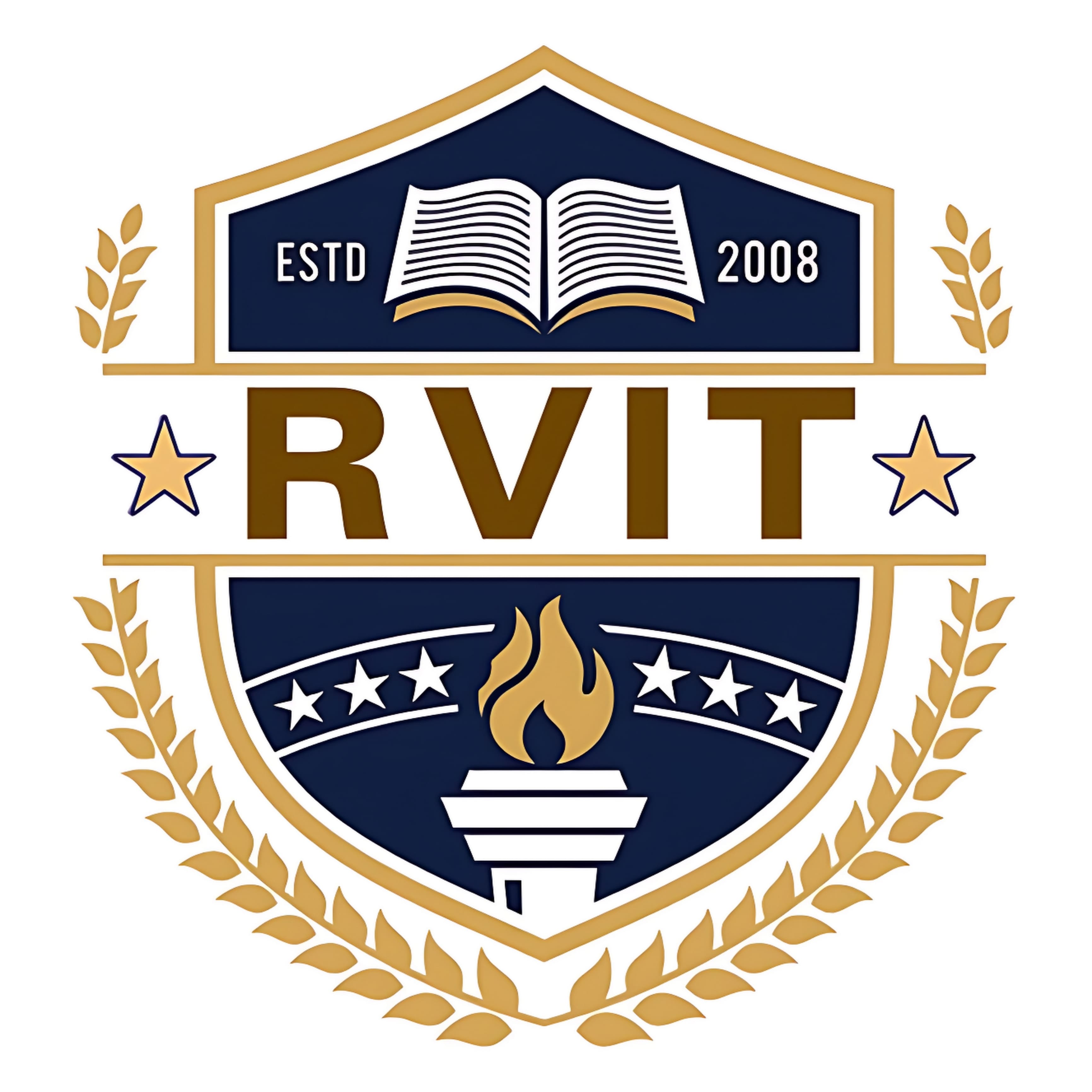
RV Institute of Technology (RVIT) (Formerly Chebrolu Engineering College) was established in 2008 by a group of visionary young technocrats.
Sponsored by SRI VISWESWARAIAH EDUCATIONAL SOCIETY, the institute is committed to fostering technical education and national development. We pride ourselves on our student-centric approach, emphasizing Research & Development (R&D) which has led to prestigious selections in MSME idea contests.
Institutional Functions & Compliance
We strictly adhere to the norms of statutory bodies like AICTE and UGC, ensuring top-tier standards in:
Our unique program to associate students' skills with livelihood opportunities through a structured approach.
Objectives
Aligning skills and knowledge with societal needs and research.
The Context
Supporting students from less-privileged backgrounds with extra care.
The Practice
Special training, monetary incentives (Rs 10k), and alumni support.
Success
Students running workshops and achieving self-sustainability.
Monitoring Committee
| S.No | Name | Designation | Department | Role |
|---|---|---|---|---|
| 1 | Dr. R.V. Krishnaiah | Professor | CSE | Principal |
| 2 | Dr. G. Bharathi | Assoc. Professor | CSE | Member |
| 3 | Ch. Hari Babu | Assist. Professor | EEE | Member |
| 4 | Dr. Md Shabana Sultana | Assoc. Professor | S&H | Member |
| 5 | Dr. V. Dinesh Babu | Assoc. Professor | CSE | Member |
| 6 | Dr. A. Raghavendra Rao | Assoc. Professor | S&H | Member |
| 7 | Dr. K V Lakshmi | Assoc. Professor | S&H | Member |
